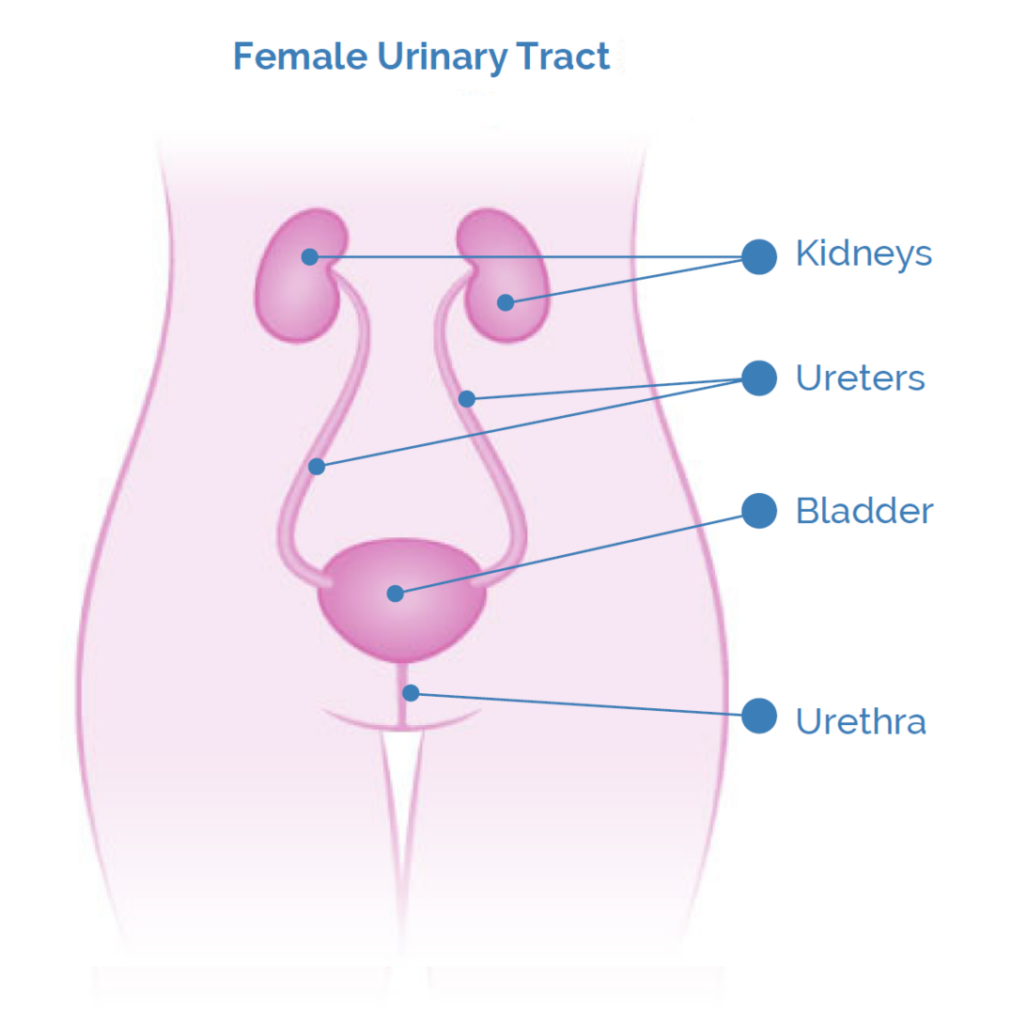
Urinary tract infection (UTI) symptoms in men
Urinary tract infections, or UTIs as they are sometimes called, can occur in both men and women. While 50% of women will experience a UTI during her life, one in five men will also experience a UTI in his lifetime. While less common, it is still important to be able to recognise a UTI and know when to seek help from a doctor. This article will focus on UTIs in men. Learn more about UTIs in women.
How the urinary tract differs between men and women
Both male and female urinary tracts are made up of the kidneys, the bladder, two ureters to carry urine from the kidneys to the bladder and one urethra that carries urine out of the body.


In the male body the urethra is further away from the bladder (a longer distance than in women). Because of this, bacteria have a longer way to travel to get into the urinary tract from the outside world. As an extra bonus, the opening of the urethra in men is further away from the anus, so bacteria don’t have easy access like they do in females. Fluid released by the prostate gland also contains antibacterial agents, helping to prevent UTIs in men.
UTI symptoms in men
Symptoms of a UTI are similar to those seen in women. In men symptoms include:
- Urge to urinate frequently, but then only a little comes out
- Burning when you urinate
- Cloudy urine
- Strong, unpleasant smelling urine
- Dark or bloody urine
- Pain in the rectum
- Pain in your sides
- Lower back pain
Pain in the back or lower abdomen, fever, chills or diarrhoea and vomiting may indicate a kidney infection which is serious and needs immediate medical attention.
Why are UTIs more complicated in men than in women?
Because it is more difficult for bacteria to get into the urinary tract in males all UTIs in men should be considered ‘complicated’. This just means they need to be thoroughly investigated to find out the cause. In addition, UTIs in men may be difficult to cure due to their anatomy and the potential causes of the infection, discussed below. Find out if a UTI can go away on its own.
What are some male UTI causes?
Blockages in the urinary tract can lead to a build-up of urine in your bladder – which may allow bacteria to multiply and travel further in. Things like kidney stones or bladder stones can cause blockages. Similarly, an enlarged prostate can lead to partial emptying of the bladder, also allowing bacteria the chance to grow. If urine builds up and is not flushed out of the system it can be difficult to get rid of the bacteria growing within it, making it harder to treat a UTI. Learn what to do if a UTI keeps coming back.
A risk factor unique to people with a penis is not being circumcised. The foreskin can trap bacteria, bringing them closer to the entrance of the urinary tract, if not cleaned properly.
As with women, diabetes can increase your risk of a UTI. This is due to higher sugar levels in the urine, feeding bacteria. Diabetes can also weaken your immune system against UTI-causing bacteria.
If you are a man and you think you may have a UTI, it is important to seek medical attention straight away. Early treatment of UTI may help prevent the infection spreading further up the urinary tract or causing more complications.
Frequently asked questions (FAQs)
In men symptoms include needing to urinate often, but not being able to fully empty the bladder, a burning sensation when urinating, cloudy or smelly urine, dark or bloody urine or pain in the rectum, sides or lower back.
In men a UTI may be caused by a blockage leading to urine being left in the bladder. If bacteria gets in it can be difficult to remove. This is why all cases of UTI in men should be investigated and treated by a doctor.
Yes – bacteria can be transferred to the urethra during sexual intercourse. Young men who get a UTI tend to get it as a result of a sexually transmitted disease. Anal sex also increases your risk of a UTI.
In men the opening of the urethra is further away from the bladder than in women. It is also further away from the anus, making it harder for bacteria to get into the urinary tract from the outside world. In addition, men release fluid from the prostate gland that contains antibacterial agents, helping to prevent UTIs. Because men have these additional defenses against UTIs, any UTI is considered ‘complicated’ and needs to be addressed by a medical professional as soon as possible.
AU-2024-03-0090
